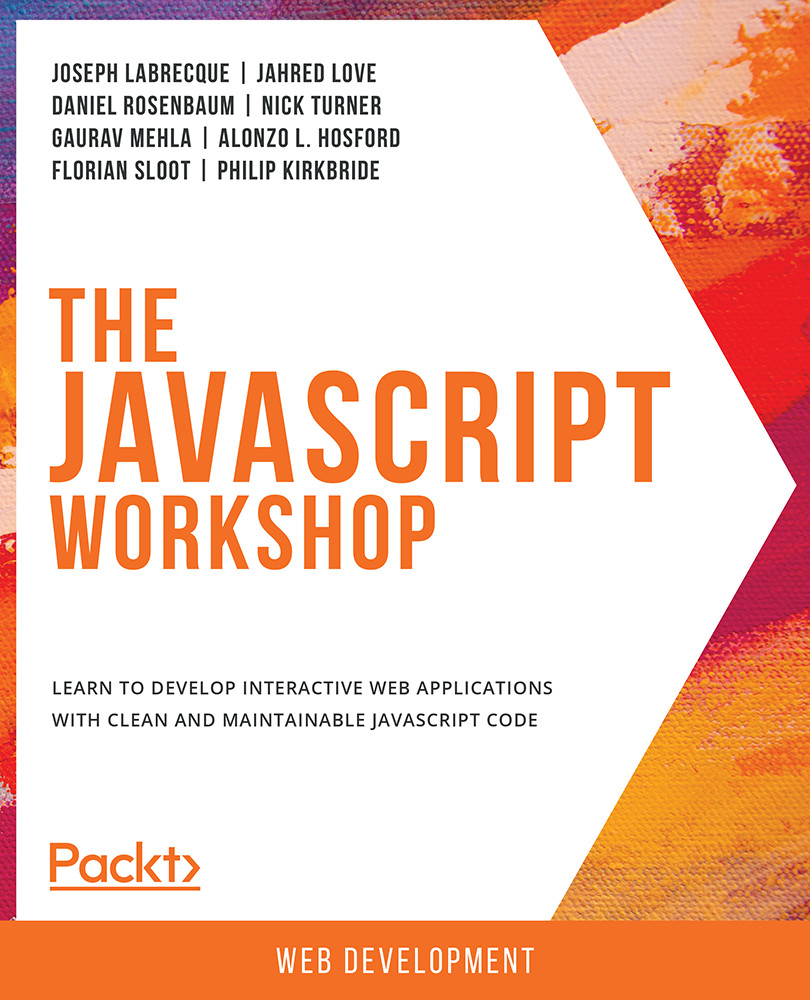As we noted previously, the JavaScript engine utilizes an event loop. In fact, events are at the center point of the JavaScript engine and its language. At its simplest definition, an event is a notification that something has occurred. This may be interaction by the user with a web page or the completion of some process that occurs within the browser.
To make use of events, a callback function must be assigned to the event type, much like with the timer-based function. However, typically, events are a little more complex and feature-rich than simple timers.
An event notification is known in programming as a dispatched event. When JavaScript events are dispatched, they are passed an event object. This is true of all JavaScript events. The event object contains useful details about the dispatched event, including the name of the event, a reference to the object that holds the context of the event, and a reference to the object that triggered the...



 Free Chapter
Free Chapter
